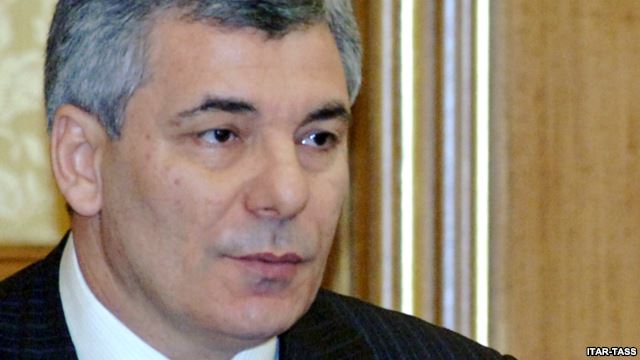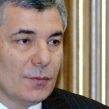
Moscow Signals Kanokov’s Term as Head of Kabardino-Balkaria May End
Publication: Eurasia Daily Monitor Volume: 10 Issue: 146
By:

On July 30, the Russian security services reported that four suspected rebels were killed in Stavropol region. A source in the local police said the incident took place on July 29 near the town of Tersky, located in Georgievsky district in the southern part of the Russian populated enclave in the North Caucasus. Police personnel reportedly stopped a car on a highway and someone in the car threw a hand grenade at them, after which the officers opened fire and killed the four suspects. One police officer was wounded in the clash (https://www.yuga.ru/news/302531/). On July 31, the police provided more details about the incident, reporting that the slain rebels were residents of Kabardino-Balkaria’s Zolsky district. The suspects reportedly had a cache of ammunition that included a bomb consisting of 20 kilograms of TNT. The police asserted that they followed the suspects for a long time as they amassed ammunition in the area while pretending to be visiting a relative in Stavropol region (https://kommersant.ru/doc/2244836).
Perhaps the most intriguing part of the incident is that the four slain suspected rebels were carrying IDs of a private security firm called Sindika-Shchit. This security firm is known to be associated with the head of Kabardino-Balkaria, Arsen Kanokov. The firm frantically denied any ties to the suspects (https://www.kavkaz-uzel.ru/articles/227978/). Whether the suspects really had links to a private security firm that works under the auspices of the leader of Kabardino-Balkaria or this was simply disinformation concocted by the security services, the incident remains ominous for Kanokov. Either way it may indicate Kanokov has powerful enemies in the security services, and probably in the Russian government as well, who want him to step down. Circumstantial evidence of Kanokov’s problems with the Kremlin erupted in July, when the Audit Chamber of Russian Federation found that the Kabardino-Balkarian government had been responsible for financial and other irregularities worth over $170 million. Kanokov ordered his government “to remove the violations within one month” (https://www.yuga.ru/news/302825/). Moscow appears to be preparing grounds for his possible dismissal as head of Kabardino-Balkaria and his actions are unlikely to change Moscow’s mind.
The suspected rebels killed in Stavropol region were subsequently identified as Artur Zhanov, Azamat Kumykov, Rizuan Vorokov and Bek Teuvazhev. Relatives of the slain men insisted they had not been involved in the insurgency. An anonymous female relative of Zhanov told the Kavkazsky Uzel (Caucasian Knot) website that all four of the slain main worked at a tannery factory in Stavropol region as security guards. “Artur and his three friends left the factory after their shift on July 29 and planned to travel back home to Kabardino-Balkaria,” she said. “Unidentified people took them away right from the factory.” Neither the relatives nor the police could find the men for a day, and they were later reported dead. “Some people said they were found dead in open fields, others that they were found by the water reservoir and still others said they were killed during a shootout,” the relative of Zhanov told the website. Each of the slain men had been shot in the head and each of their bodies was disfigured, their relatives reported. Despite this, the suspects’ bodies were released to their relatives for burial, which contradicts the usual practice of police in the North Caucasus not to allow relatives to bury terrorists. The accounts of the relatives were given more credence by reports that two of the slain suspects, Kumykov and Vorokov, were practicing Muslims, while the other two, Zhanov and Teuvazhev, were not (https://www.kavkaz-uzel.ru/articles/227995/). If this information is accurate, then either the insurgents in Kabardino-Balkaria are no longer united by Islamic ideology, or the Russian police killed innocent men on July 29.
The killing of four residents of Kabardino-Balkaria in the Stavropol region is likely to have a negative impact on Arsen Kanokov’s career and possibly build pressure on him to resign. The incident is also likely to increase secessionist tendencies in the ethnic Russian-majority Stavropol region, which aspires to separate itself from the North Caucasus Federal District and install stringent migration controls along its administrative border. Third, for North Caucasians this incident signals that the war against insurgents in the region has turned into a war of Russians against non-Russians. Another anonymous relative of the four slain men indignantly told Kavkazsky Uzel: “Our republic is experiencing complete chaos. Our youth are killed off like dogs. Unknown people kill five-six people in the republic for unknown reasons every day. The story of our relatives is by far not unique. They first shoot down the kids and then declared on the websites that they killed members of bandit groups” (https://www.kavkaz-uzel.ru/articles/227995/).
Kabardino-Balkaria is coming to the forefront of media and government attention in the North Caucasus as the 2014 Winter Olympics in Sochi approach. Despite an officially reported decline in terrorism-related crimes in the republic (https://www.yuga.ru/news/302714/), there are many other issues likely to keep this republic in the headlines in the coming months, especially in the run-up to the Olympics. Moscow appears inclined to opt for its usual tactics in Kabardino-Balkaria—which include a continuing reliance on crude force, the avoidance of any real reforms, and the endless reshuffling of administrative officials. It is no wonder, then, that tensions in the republic are not subsiding, but simply taking on different forms of public discontent.




